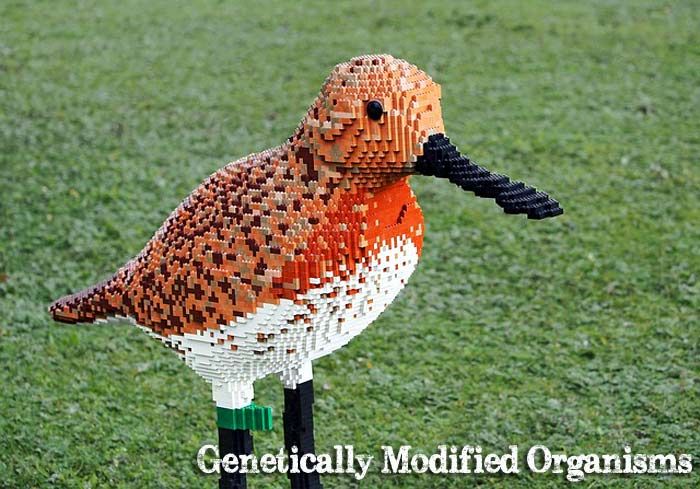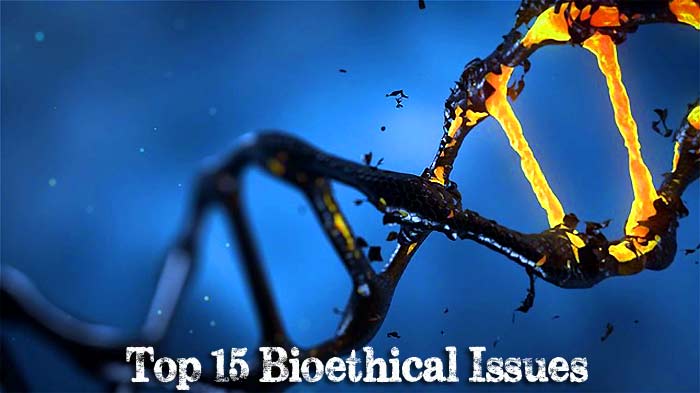Bioethical Concerns: Bioethics is the study and assessment of scientific research and medical choices, including the health and lives of people, as well as society and the ecosystem. The terms bio and ethics are combined in the term bioethics.
As a result, this field is worried about the legitimacy of scientific findings and created technologies, as well as the incorporation of human rights and principles to health and life.
The most popular scientific issues and bioethics supporters’ interest in the following issues appear to have captured the attention of the media and the general public.
Top Bioethical Issues
1. Abortion

Abortion refers to the premature ending of a pregnancy which occurred in itself (known as miscarriage or spontaneous abortion) or by force through surgery or taking medications. The topic of abortion raises intense personal issues about many topics such as morals, religion, sexuality, autonomy, politics, and science and medicine.
- The fundamental question throughout the abortion is whether or not unborn children (known as fetuses) have moral value and meaning. Moreover, issues related to parental duties and responsibilities, as well as the concept of personhood, emerge.
- Despite the fact that almost every aspect of bioethics has been contested, there has never been a moral consensus.
2. Surrogacy

Surrogacy is the next bioethical topic on our list. Surrogacy (e.g., same-sex couples, single men, single women, or man/wife) refers to the process of assisting with the reproduction of parents who are unable to do so. Surrogacy is usually performed by women (also known as gestational moms or gestational surrogates) who carry the child in their womb for the majority of its duration.
- The bioethical concern here is the confusion in the identity of the child, whether or not his biological parents are considered his “true” parents.
3. Whole Genome Diagnosis

Researchers and physicians can now study and access the whole genome of a newborn thanks to advances in technology. The individual’s risk of developing and progressing certain illnesses is determined using such screening.
- Yet, due to the lack of informed consent from the individual (a.k.a. the newborn), this process seems to draw criticism.
4. Cloning

The method of developing a distinct population of genetically similar and identical naturally occurring creatures is known as cloning. Bacteria, plants, and animals are all common cloning targets.
- The fact that humans become the subject of such experiments is a major bioethical concern regarding cloning.
- Bioethics has become primarily concerned with the moral status of the cloned organism, which is produced largely for destruction and as a source of organs. The health implications for both mother and kid, damage to the clone, low success rates even after many attempts and specimens, psychological impact on the clone, and commercialization and commodification of life itself ar
- e all examples. Here’s where you can learn about the benefits and drawbacks of cloning.
5. Stem Cells

In biology, stem cells are immature (or undeveloped) cells that may divide and differentiate into specialized cells.
- The bioethical issues surrounding stem cells are just as significant as cloning.
- In order to have respect for life in general, people must respect all life forms. Bioethicists believe that stem cell research violates this principle since the source organism (usually an embryo) is destroyed during the process.
- While stem cell research may improve human health and relieve pain, the development of stem cell lines might lead to their uncontrolled commodification.
6. Eugenics

Eugenics is a social movement in philosophy that advocates for the creation of the finest human society and race by encouraging people to have offspring with favorable or desired traits while withholding and forbidding people to have offspring with unfavorable or undesirable traits.
- Eugenics became very popular after Adolf Hitler issued a directive ordering the slaughter of individuals who were crippled or sick.
- Many people fear that as a consequence of scientific and technological advancement, the principle of genetics might come to rule again. Two ethical issues regarding eugenics are the moral principle linked with racial equality and the subjective belief in perfection.
7. Genetically Modified Organisms

GMOs are organisms that have had a gene or DNA sequence from another species inserted into them. This is a technique that produces an organism with the best characteristics, similar to how eugenics works.
- The creation of GMOs, on the other hand, requires genetic work and is typically done in crops and animals, unlike eugenics.
- Bioethical concerns regarding it are similar to those surrounding cloning, stem cell research, and eugenics in that the production and use of genetically modified organisms is new, as is their long-term implications on health.
8. Healthcare

As previously indicated, technological advances have led to significant medical breakthroughs.
- There are additional ethical issues involved with the distribution of resources, decision-maker, and beneficiary of the benefit; cost-efficiency; and measurement of success. Some people, on the other hand, believe that health care just causes health inequity.
9. Aged Care

A portion of the world’s population is composed of elderly citizens, and naturally, they become the priority for funding and public policy through the establishments of aged care and other accommodation services.
- These programs, like health care, raise questions about who should provide assistance to the elderly and what their living standards should be.
- Balance, freedom, and safety are all issues that are being addressed in addition to that.
10. Euthanasia

Euthanasia is the practice of trying to stop an person’s suffering by intentionally ending his or her life. Mercy-killing, assisted suicide, or doctor-assisted suicide are all terms that are used to describe euthanasia.
- Several individuals (particularly bioethics supporters) think that euthanasia is simply the humane termination of life.
- Regardless of the circumstances, euthanasia is prohibited in many countries across the globe.
- The notion of euthanasia contradicts the idea that all life forms are sacred and equal. Euthanasia is considered to harm both the usefulness of suicide prevention and the profession of medicine.
11. Organ Donation

The practice of donating or receiving an organ appears to cause ethical problems, despite being virtually ubiquitous. Organ donation has raised a number of moral, societal, and ethical concerns similar to those raised by cloning and stem cell research.
- There is a severe lack of organs for those in need, which is the first bioethical problem with organ donation. Thousands of individuals are on the list for organ transplant surgeries, whether they come from a living or dead donor. The updated waiting list, statistics on how many persons are being added to the list every minute, how many people receive the transplant, and how many persons die every day during transplant surgeries can be found at United Network for Organ Sharing (UNOS).
- Equal access to organs (aka distributive justice theory) for those who need them based on the length of time they have spent waiting is the next bioethical problem on this topic. If their poor lifestyle caused organ damage (such as smoking or substance abuse) over patients who have no control over their diseases, according to this theory, the patients who wait for transplant would be unable to move up the waiting list.
- Another major ethical dilemma is the risk of unlawful organ stealing from live patients (human trafficking) in order to establish organ farming in order to sell body parts for huge sums of money.
12. Head Transplant
Surprisingly, transplantation experiments involving an organism’s head are being conducted. In reality, the first ever head transplant on monkeys was completed in the 1970s (the receiver only survived for ten days).
- While the safety and bioethics of such therapy in people are still unknown, there are significant health risks. Questions about memory and identity, as well as the brain’s reaction to the new body, are of importance.
13. Cryonics

The term “cryonics” refers to the process of defrosting a freshly-deceased individual and bringing him back to life at a later date. Several bioethical concerns have been raised against this procedure since it involves the reversal of a process of death.
- Immortality is one of the most contentious issues in cryonics. While some people believe that immortality is beneficial, proponents of bioethics believe that this notion should not rule because the earth is already suffering from a lack of finite population and scarce resources.
14. Bone Conduction

The replacement of an individual’s ear bones with transducers that may convey sounds is known as bone conduction technology.
- Despite its potential, this technology has a major flaw: it may convert an individual into a billboard with endless advertisements. In this instance, the individual’s consent isn’t relevant.
15. Artificial Exoskeleton
The development of an artificial skeleton for the elderly to boost their strength and aid them with mobility is another bioethical problem. These youngsters may be able to walk, run, and bend like someone who is younger than them thanks to their synthetic skeleton.
- The possible abuse that the elderly may suffer when they are compelled to work longer before and even after retirement age is a bioethical issue.
Ultimately, based on the above, we may conclude that some of the aforementioned scientific protocols and medical techniques are a risky and ethical minefield even in ideal circumstances.
